
Recently Viewed
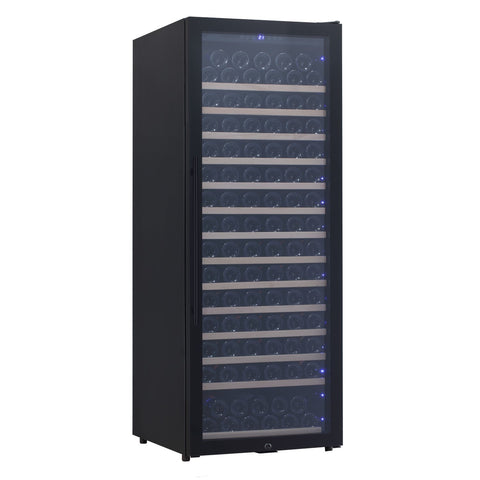

 Thermaster Single Zone Large Premium Wine Cooler WB-166A
Thermaster Single Zone Large Premium Wine Cooler WB-166A
598(W) x 690(D) x 1600(H)mm

 Thermaster Single Zone 490L Premium Wine Cooler WB-194B
Thermaster Single Zone 490L Premium Wine Cooler WB-194B
655(W) x 695(D) x 1840(H)mm
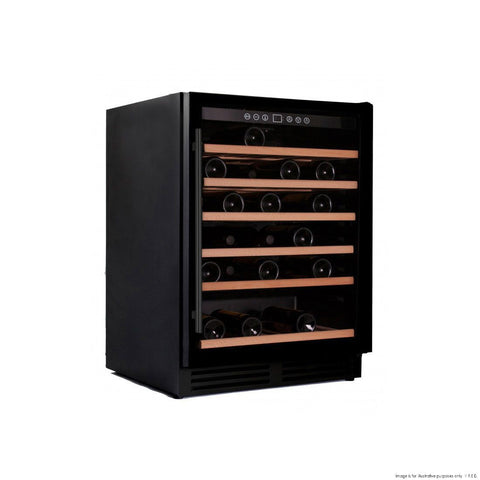

 Thermaster Single Zone Wine Cooler WB-51A
Thermaster Single Zone Wine Cooler WB-51A
595(W) x 575(D) x 820(H)mm
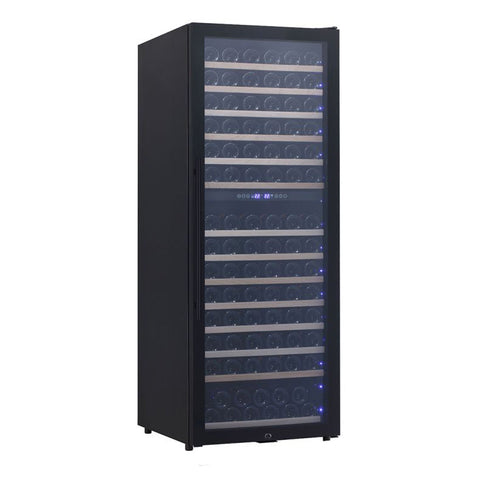

 Thermaster Dual Zone Medium Premium Wine Cooler WB-155B
Thermaster Dual Zone Medium Premium Wine Cooler WB-155B
598(W) x 690(D) x 1600(H)mm
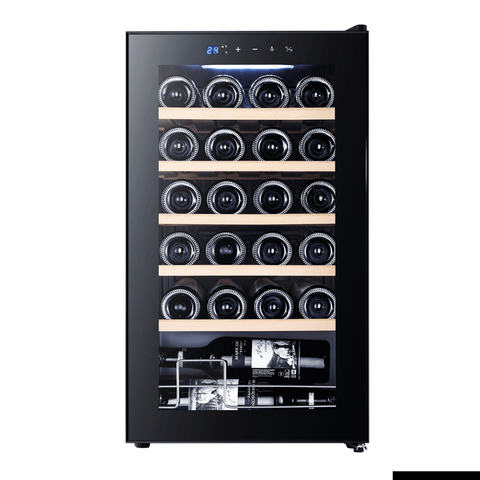

 Thermaster Underbench 65L Wine Cooler WB-24H
Thermaster Underbench 65L Wine Cooler WB-24H
430(W) x 480(D) x 756(H)mm

 Thermaster Single Zone 760L Premium Wine Cooler WB-271B
Thermaster Single Zone 760L Premium Wine Cooler WB-271B
800(W) x 690(D) x 2015(H)mm

 Thermaster Dual Zone Two Door Premium Wine Cooler WB-218B
Thermaster Dual Zone Two Door Premium Wine Cooler WB-218B
1000(W) x 600(D) x 1900(H)mm
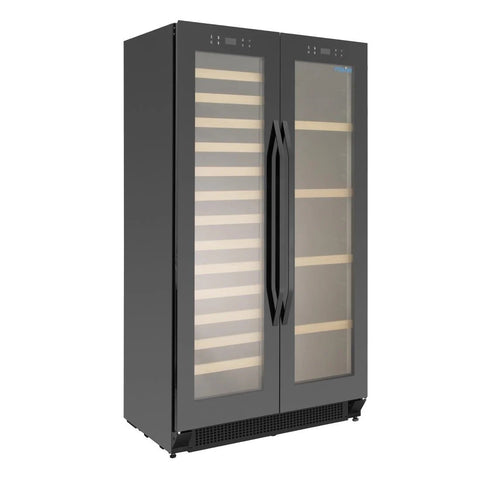

 Polar G-Series Double Door Beer/Wine Fridge - GL097-A
Polar G-Series Double Door Beer/Wine Fridge - GL097-A
890(W) x 1627(H) x 550(D)mm
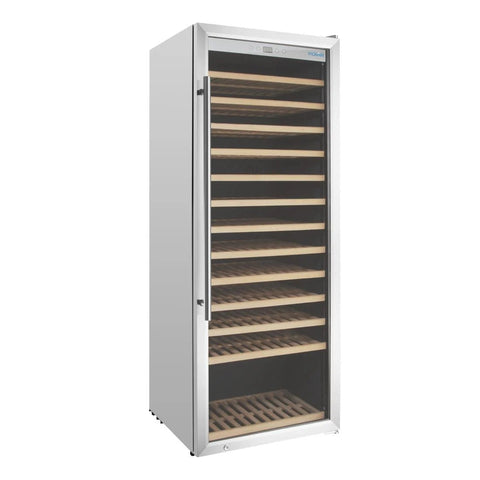

 Polar G-Series Single Zone Wine Fridge Stainless Steel 137 bottles - GM888-A
Polar G-Series Single Zone Wine Fridge Stainless Steel 137 bottles - GM888-A
595(W) x 1575(H) x 685(D)mm
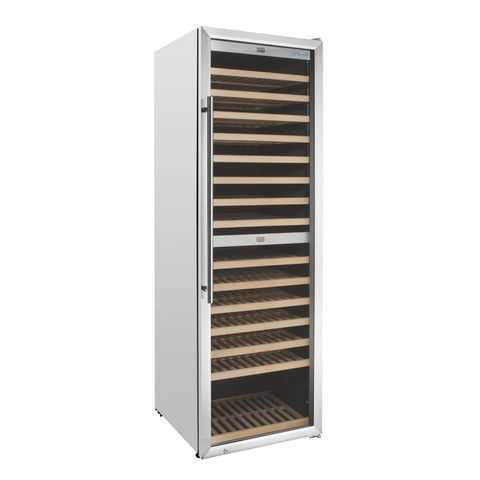

 Polar G-Series Dual Zone Wine Fridge Stainless Steel - 180 Bottle - GM629-A
Polar G-Series Dual Zone Wine Fridge Stainless Steel - 180 Bottle - GM629-A
696(W) x 595(H) x 760(D)mm
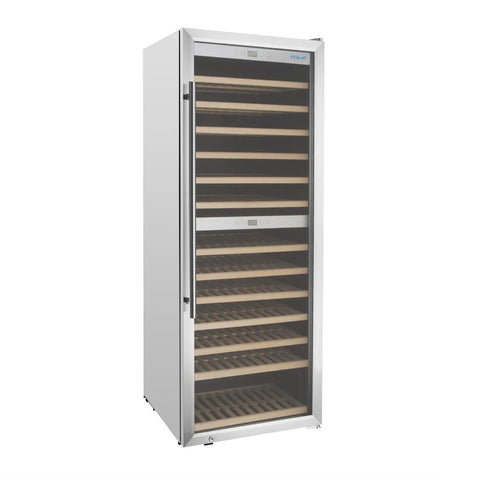

 Polar G-Series Dual Zone Wine Fridge Stainless Steel - 126 Bottle - GM628-A
Polar G-Series Dual Zone Wine Fridge Stainless Steel - 126 Bottle - GM628-A
595(W) x 1575(H) x 685(D)mm
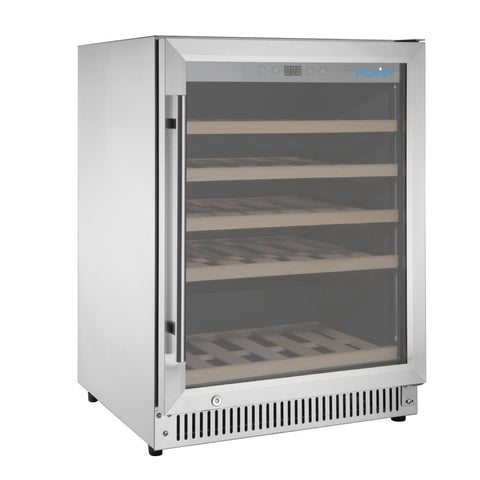

 Polar G-Series Wine Fridge Stainless Steel - 51 Bottle - GM627-A
Polar G-Series Wine Fridge Stainless Steel - 51 Bottle - GM627-A
595(W) x 820(H) x 625(D)mm

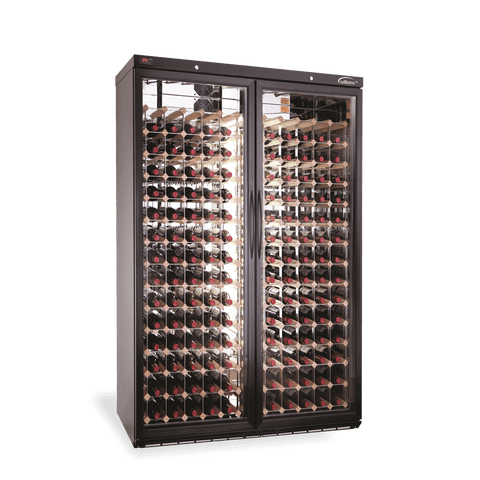

 Williams Wine Cabinet - Two Door Black Upright Wine Display Refrigerator BC200W-DR
Williams Wine Cabinet - Two Door Black Upright Wine Display Refrigerator BC200W-DR
1290(W) x 625(D) x 1770(H)mm
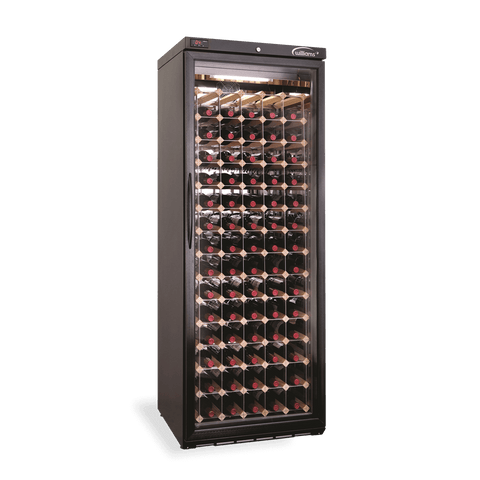

 Williams Wine Cabinet - One Door Black Upright Wine Display Refrigerator BC95W-DR
Williams Wine Cabinet - One Door Black Upright Wine Display Refrigerator BC95W-DR
645(W) x 625(D) x 1770(H)mm
Commercial wine fridges are specialized refrigeration units designed to store and display wine in commercial settings such as restaurants, bars, and hotels. These fridges are equipped with features tailored to the storage and presentation of wine, including adjustable temperature controls, UV-protected glass doors, and humidity control systems. Australian business owners can benefit from investing in commercial wine fridges for several reasons. Firstly, these fridges offer a professional and aesthetically pleasing way to showcase wine collections, enhancing the overall ambiance of the establishment. Additionally, by maintaining the optimal storage conditions for wine, such as consistent temperature and humidity levels, these fridges help preserve the quality and taste of the wines, ensuring a superior drinking experience for customers. In terms of value for money, commercial wine fridges offer long-term cost savings by reducing the risk of spoilage or wastage of expensive wine stocks. Moreover, they can help boost sales and customer satisfaction by making it easier for staff to access and serve wine promptly. As a restaurant equipment online representative, the decision on whether wine fridges are worth it ultimately depends on your specific needs and preferences. Wine fridges are designed to store wine at the optimal temperature and humidity levels to preserve its quality and flavor. If you are a wine enthusiast or a restaurant that serves a variety of wines, investing in a wine fridge may be beneficial to ensure that your wines are stored correctly. However, if you do not require precise storage conditions for your wine collection, a regular fridge or wine rack may suffice. Feel free to contact us for more information or assistance in selecting the right equipment for your needs. Yes, it is generally recommended to store wine in a wine fridge in order to preserve its quality. Wine fridges are designed to maintain the ideal temperature and humidity levels for different types of wines, which helps to prevent spoiling and maintain the wine's intended flavor profile. Storing wine in a wine fridge also protects it from light and vibration, which can negatively impact its taste. Ultimately, using a wine fridge can help ensure that your wine ages properly and is enjoyed at its best. The lifespan of a wine fridge can vary depending on various factors such as the quality of the fridge, how well it is maintained, and how frequently it is used. On average, a well-maintained wine fridge can last anywhere from 5 to 10 years. However, some high-quality wine fridges can last even longer with proper care and maintenance. It is important to follow the manufacturer's instructions for cleaning and care to ensure the longevity of your wine fridge. A wine fridge is specifically designed to store and cool wine at the optimal temperature. While it may be tempting to use it as a regular refrigerator for other beverages or food items, it is not recommended to do so. Wine fridges typically have different temperature settings and circulation systems than regular refrigerators, which could result in improper storage conditions for food items. It is best to use a wine fridge exclusively for storing wine to maintain its quality and taste. Wine that should not be refrigerated includes fortified wines such as port, sherry, and madeira. Additionally, delicate white wines like Riesling and Chenin Blanc should be stored in a cool, dark place but not necessarily in the refrigerator. Refrigerating these types of wines can alter their flavors and aromas. It is best to consult the specific recommendations for each type of wine to ensure proper storage conditions. Wine fridges vary in energy efficiency depending on the model and brand. Generally, wine fridges are designed to be energy-efficient and consume a moderate amount of electricity. It is recommended to check the energy consumption specifications provided by the manufacturer when purchasing a wine fridge to ensure it meets your energy requirements. When selecting a wine fridge, there are several factors to consider to ensure you choose a good one. Firstly, decide on the capacity you need based on the number of bottles you plan to store. Look for a wine fridge with a temperature control feature to maintain a consistent and suitable temperature for storing different types of wines. Consider opting for a model with UV protection to shield your wines from light exposure. Additionally, pay attention to the overall build quality, energy efficiency, and any additional features like humidity control. It is also recommended to read customer reviews and ratings to help you make an informed decision. The ideal temperature for storing wine in a wine fridge is typically between 45°F and 65°F (7°C to 18°C), with 55°F (13°C) being a commonly recommended temperature. This range helps to preserve the flavor and aroma of the wine while ensuring it matures properly. It's important to check the specific requirements for the types of wine you plan to store, as different varieties may have slightly different temperature preferences. Typically, the size of the wine fridge you need for your collection will depend on the number of bottles you plan to store. It is recommended to choose a wine fridge with a capacity that exceeds your current collection size to accommodate future additions. If you have a small collection of fewer than 20 bottles, a compact wine fridge should suffice. For larger collections, consider a medium to large wine fridge to ensure ample storage space. Feel free to provide more details about your collection size for a more specific recommendation. We recommend cleaning and maintaining your wine fridge at least once every three months. This will help ensure that your unit operates efficiently and that your wine is stored in optimal conditions. Regular maintenance includes cleaning the interior and exterior of the fridge, checking the temperature settings, and inspecting the seals for any signs of wear. Additionally, it is important to periodically check and clean the condenser coils to prevent dust buildup, which can impact the cooling performance of the fridge. These are the top 10 FAQs for Wine Fridges in 2026
Are wine fridges worth it?
Is it better to store wine in a wine fridge?
What is the lifespan of a wine fridge?
Can a wine fridge be used as a normal fridge?
What wine should not be refrigerated?
Do wine fridges use a lot of electricity?
How do I choose a good wine fridge?
What is the ideal temperature for storing wine in a wine fridge?
What size wine fridge do I need for my collection?
How often should I clean and maintain my wine fridge?